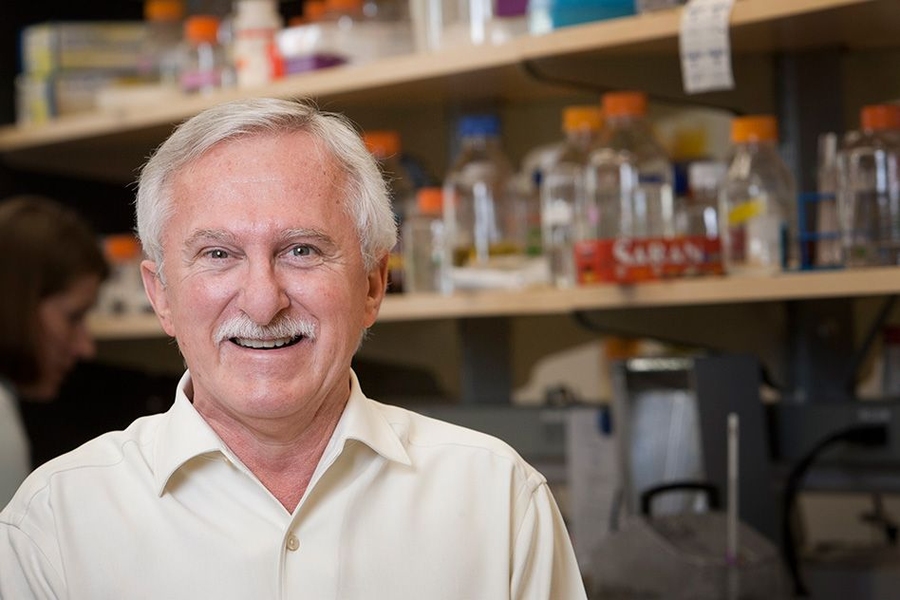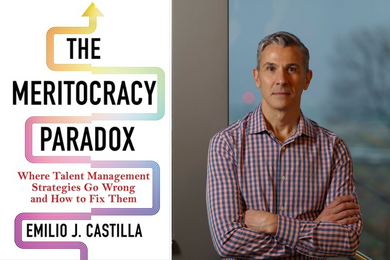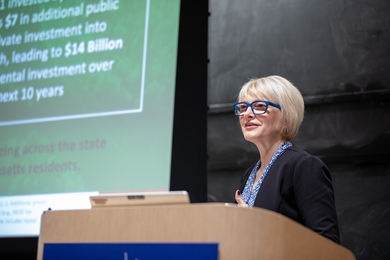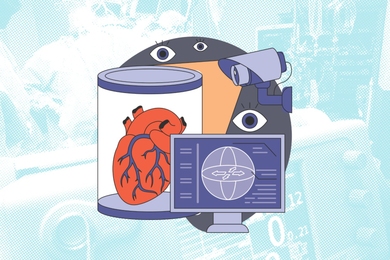Paul Modrich, a 1968 graduate of MIT, has been awarded the 2015 Nobel Prize in chemistry for his work on DNA repair mechanisms.
Modrich, who earned his BS in biology at MIT, is now the James B. Duke Professor of Biochemistry at Duke University School of Medicine and a member of the Duke Cancer Center. He is also an investigator with the Howard Hughes Medical Institute.
Modrich shares the Nobel Prize with Tomas Lindahl of the Francis Crick Institute in the United Kingdom and Aziz Sancar of the University of North Carolina at Chapel Hill. Their work mapping how cells repair damaged DNA has “provided fundamental knowledge of how a living cell functions and is, for instance, used for the development of new cancer drugs,” according to today’s Nobel Prize announcement.
DNA is under constant attack from ultraviolet radiation, free radicals, and other potential carcinogens. It also undergoes spontaneous changes as well as copying errors that occur when cells divide. To prevent their genetic material from deteriorating, cells have several systems that continuously monitor and repair DNA.
Modrich earned his one-third share of the prize for his work on a system known as “mismatch repair,” which corrects errors that occur when DNA is copied during cell division. This mechanism reduces error frequency by a factor of 1,000, and defects in this system produce the most common form of hereditary colon cancer.
The mismatch repair system essentially serves as a copyeditor to correct the rare errors made by the enzyme DNA polymerase, which is responsible for copying the bases that make up the genetic code — adenine, cytosine, thymine, and guanine, often abbreviated by the letters A, T, C, and G. Mistakes in this process occur at a rate of about one per every 10 million bases processed.
Modrich identified the 11 proteins that are responsible for this type of repair in the bacterium E. coli, and he later showed that humans have a similar system that consists of four proteins. Defects in any of the genes that code for these proteins can lead to cancer.
Modrich is the 33rd MIT alumnus to win a Nobel Prize, and the 85th MIT-connected winner of the prize.






